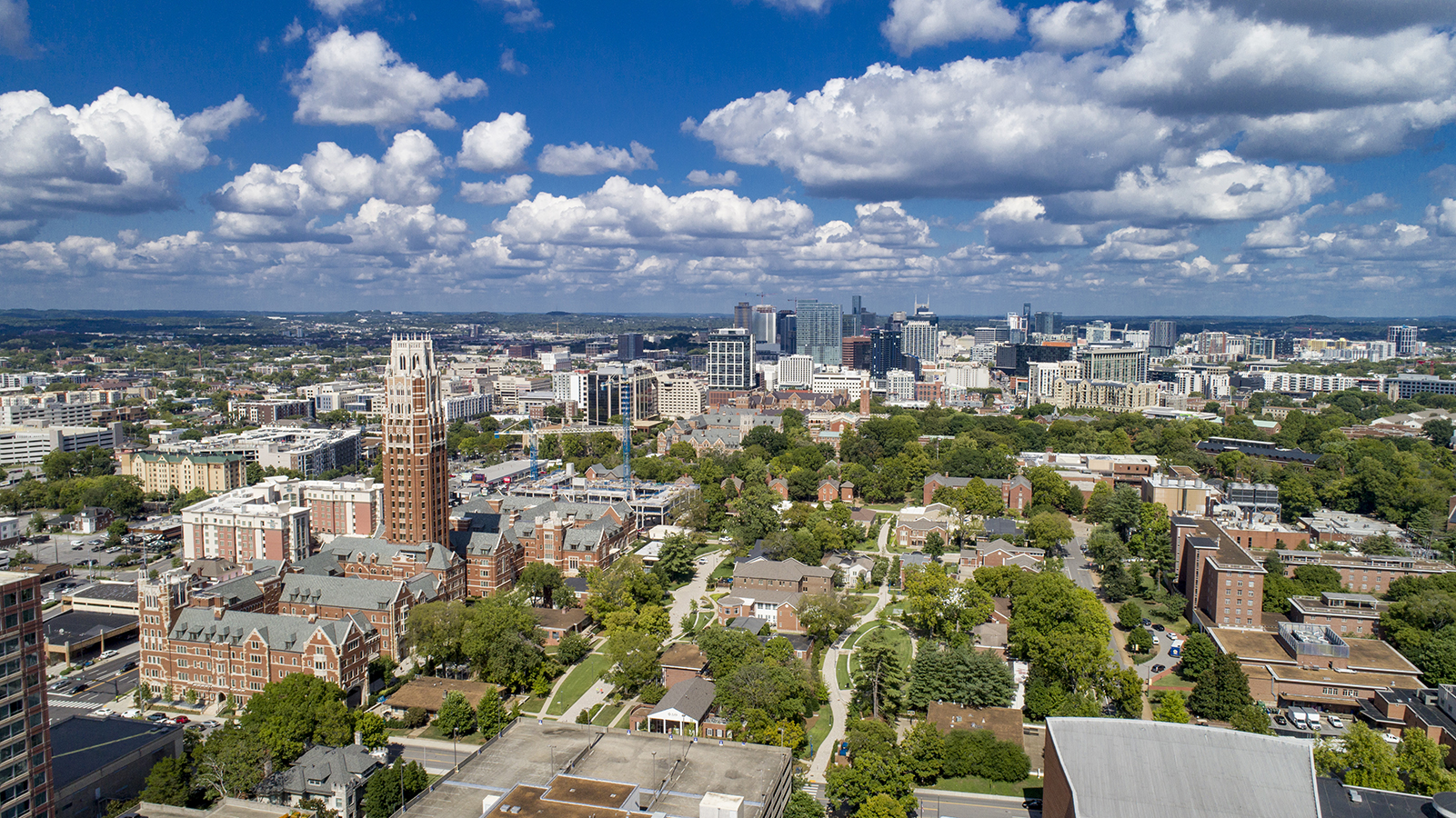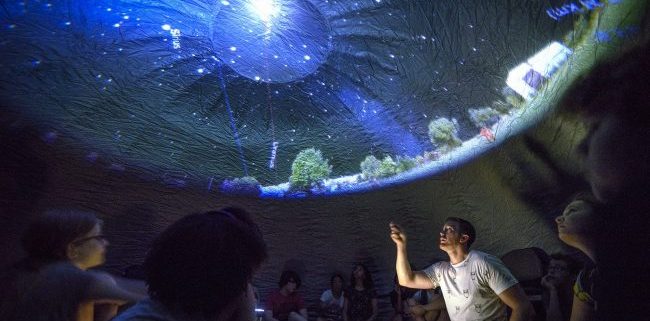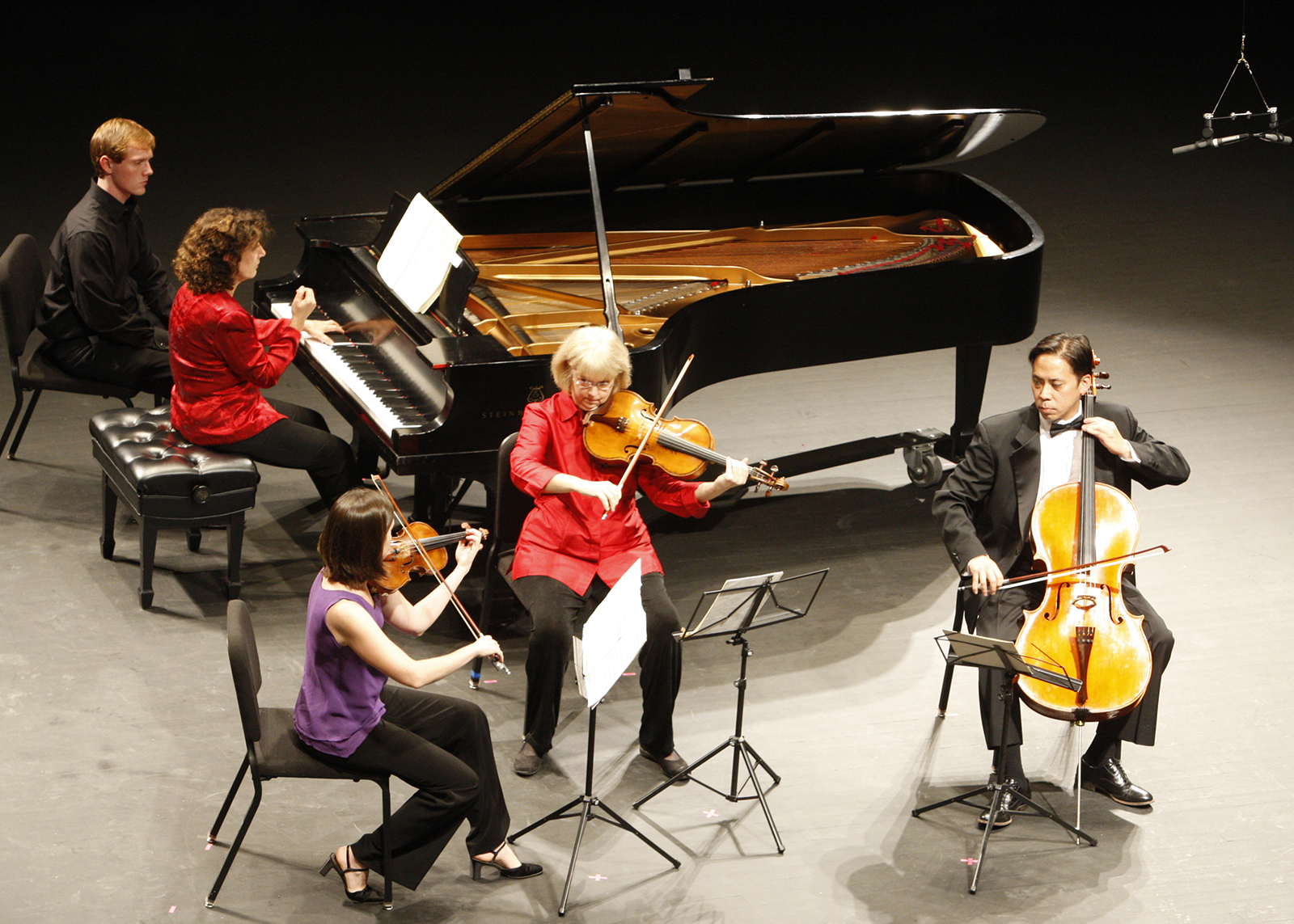by Lena Anthony, BS’03
Photos by Vanderbilt University photographers unless otherwise labeled
When Cornelius Vanderbilt gave the $1 million gift that founded Vanderbilt University in 1873, he had never visited the Tennessee city that would carry on his legacy. But he did know one of its residents: Holland McTyiere, a newspaper editor turned Southern Methodist bishop who was the leader of a movement within the church to establish “an institution of learning of the highest order.”
When the Commodore entrusted McTyiere with his gift, requesting that the bishop serve as the institution’s chief executive, it made sense that McTyiere would choose Nashville as its location.
For 150 years, Vanderbilt and Nashville have mirrored each other in growth, influence and innovation. There have been challenges and, at times, friction. But overwhelmingly, the years since Vanderbilt’s founding “on our city’s western border” have been marked by a long tradition of generosity and goodwill—given and received.
As the university and the city have grown in size and stature, nurturing this vital relationship has been a top priority for Vanderbilt’s Division of Government and Community Relations. The division oversees a variety of community-facing programs and directs Vanderbilt’s Community Impact Fund, which has supported hundreds of Nashville nonprofits.
None of this work is by accident, says Nathan Green, Vanderbilt’s vice chancellor for government and community relations.
“Nashville is our home, and for us to be a good neighbor, we have to engage in ways that are sincere, sustainable and reflective of our mission,” Green says. “It’s what we’ve tried to do since our founding, and it’s what we’ll continue to do as we embark on the next 150 years. Our relationship with the city has never been stronger, and as we dare to grow, our goal will be to help Nashville do the same.”
From arts to athletics to education and innovation, Vanderbilt has been a driving force in helping shape an ever-evolving Nashville into a dynamic, world-influencing city.

Arts
When the Blair School of Music became Vanderbilt’s 10th college in 1981, the school was known for its precollege and adult program as much as its college courses. Established in 1964 as the Blair Academy of Music, it was the precollege division of the George Peabody College for Teachers. Blair has inspired thousands of musicians of all ages and abilities through its community choirs and orchestras, private lessons and public performances by artists like Renee Fleming and Emanuel Ax. Music festival Rites of Spring, an annual tradition since 1971, and Sarratt Cinema and its International Lens film series also draw community members to campus.
More recently, Vanderbilt’s partnership with the National Museum of African American Music, which opened in downtown Nashville in 2021, has expanded on-campus programming, including panels, performances and lectures, and has deepened the museum’s archival collection, thanks to contributions by the Jean and Alexander Heard Libraries.
Outreach and Innovation
By the time Dyer Observatory opened in 1953, it was already a case study in community outreach. Named for the Nashville businessman who helped secure donations for its construction, Dyer Observatory was built using materials and manpower donated by dozens of local companies. Since then, the observatory has reciprocated that generosity by welcoming the public up its long, winding driveway to the top of one of Nashville’s highest hills. From monthly astronomer talks and telescope viewings to the Bluebird on the Mountain concert series, Dyer is as synonymous with Nashville as it is with Vanderbilt.
Outreach and innovation grow from every corner of Vanderbilt’s campus, as well. Peabody College has maintained a strong connection with the Nashville community through its long-standing partnership with Metro Nashville Public Schools and the Susan Gray School, which opened in 1968 as the nation’s first inclusive preschool where typically developing children learn alongside those with disabilities.
Since its opening in 2016, the Wond’ry, Vanderbilt’s Innovation Center, has become a hub for local innovation. The Wond’ry regularly presents speaker series, workshops and events, such as the annual TN Maker Fest, and it accepts local entrepreneurs and nonprofit leaders into its incubator and business accelerator programs.
For Nashville residents who are still curious about the world as they age, Vanderbilt offers the Osher Lifelong Learning Institute, which provides noncredit courses for adults over 50. Students meet for class on campus and in locations around Nashville to deepen their understanding on wide-ranging topics, from the complexities of the U.S. health care system to the joys and benefits of birdwatching.
Athletics
In 1922, the tract of land that would later become Vanderbilt’s athletic complex was unveiled as Dudley Field. The Vanderbilt football team’s undefeated record in 1921 was a boon for boosters hoping to raise money for a new football stadium. They did it quickly, and the South’s first dedicated football stadium opened to much pomp and circumstance that fall. Memorial Gym, designed by Nashville architect and alumnus Edwin Keeble, BA 1924, opened its doors in 1952.
Now, as then, Vanderbilt athletic events serve as a meeting place for Nashvillians to gather and cheer on the Commodores. Today, Vandy United, the $300 million investment in student-athletes and athletics programs that will elevate every sport, athletic facility and game day experience, is helping build on the excitement that Nashvillians feel for Vanderbilt’s teams. In addition, Commodore athletes frequently venture into the community to serve as role models.


















